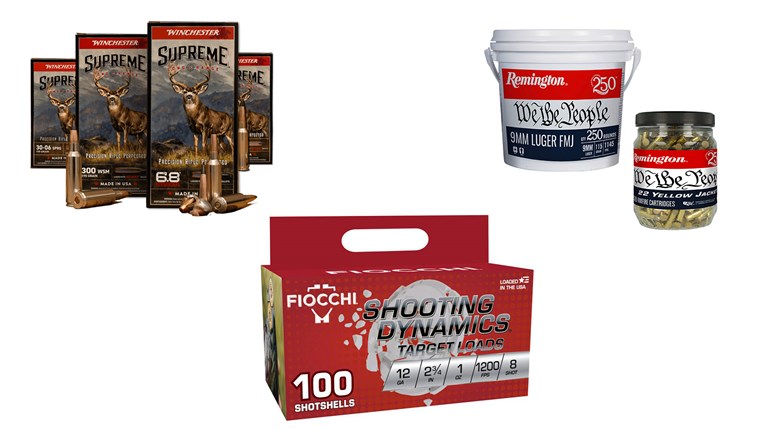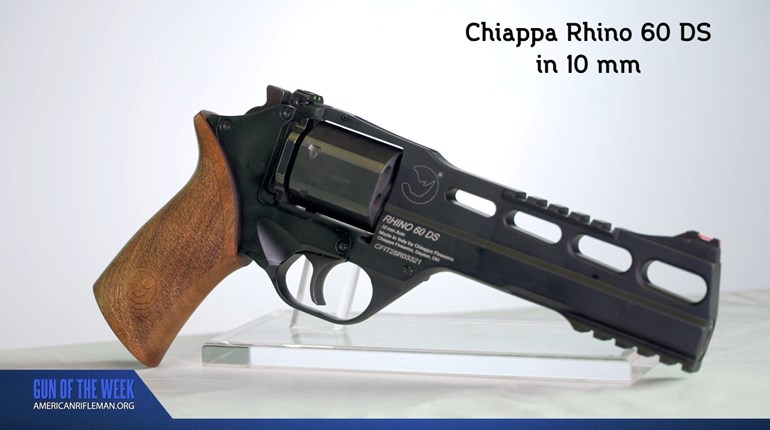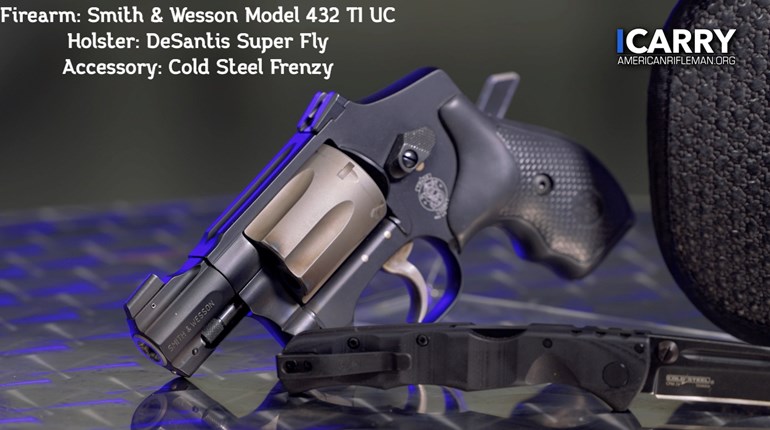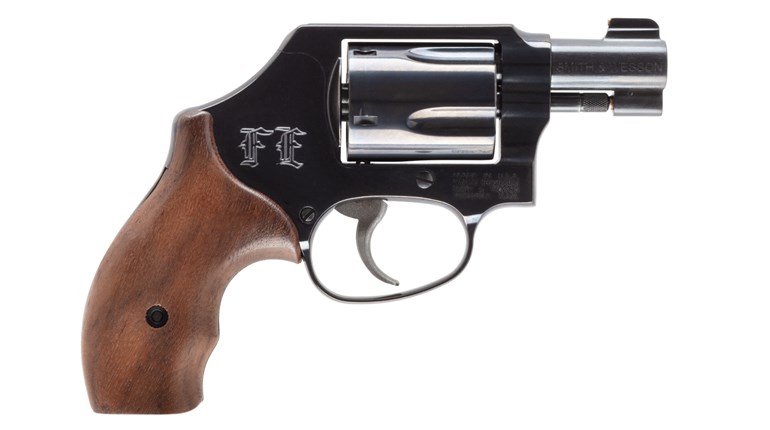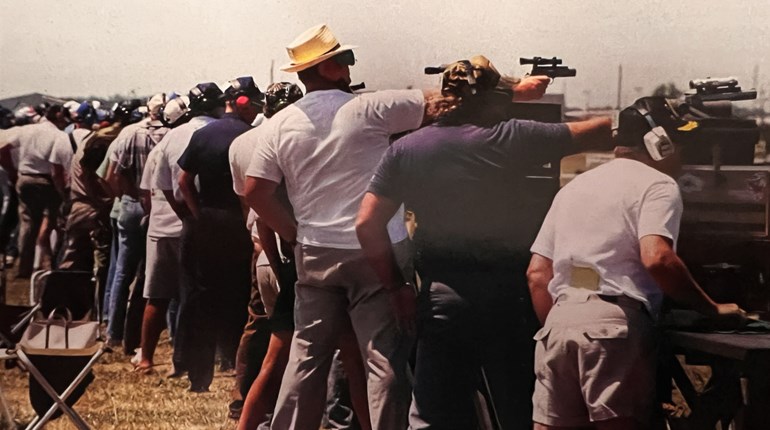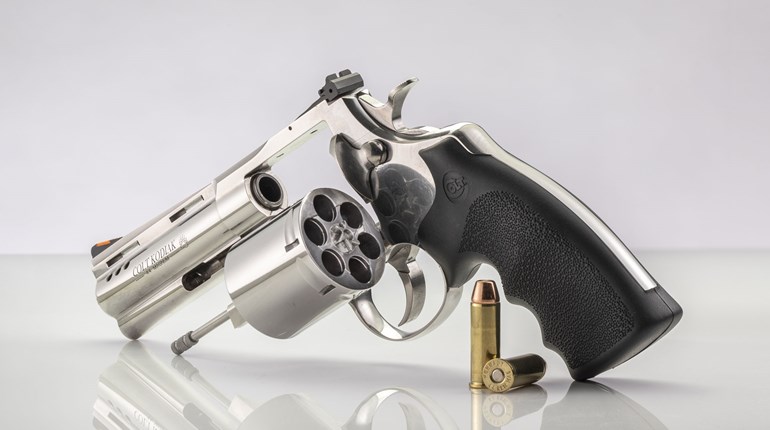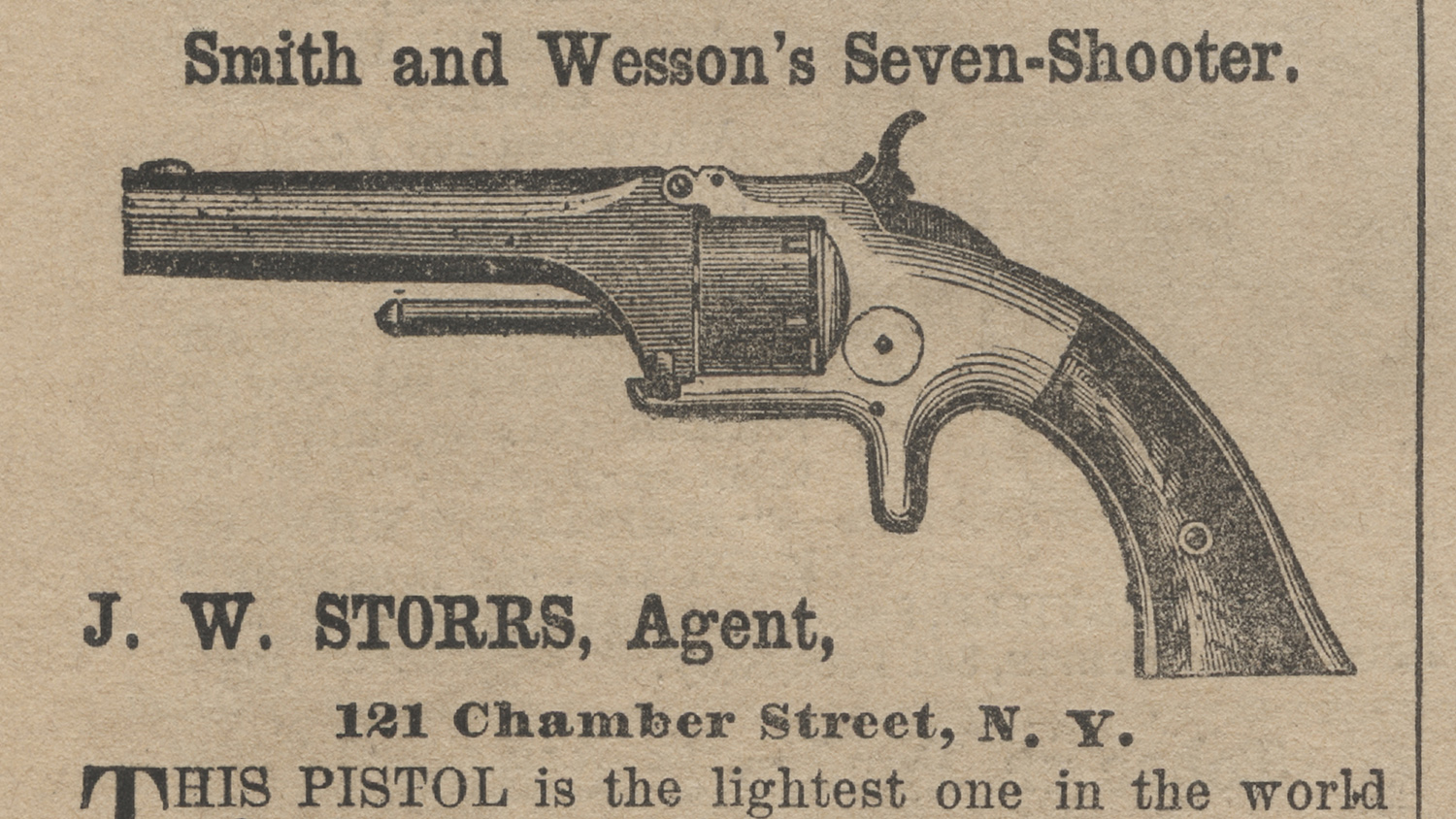
Founded in 1852 by Horace Smith and D.B. Wesson, Smith & Wesson has been a pivotal member of the firearms community. Despite some bumps along the way, Smith & Wesson has continually evolved its brand branching the world of revolvers to pistols and even long guns. With well over 100 years in the business, there’s a few lesser-known facts about the storied company that Shooting Sports USA is happy to bring to light.
The Model 1 Revolver was Smith & Wesson’s first commercial success

After a failed pistol design, things weren’t looking optimistic for Smith & Wesson; however, the tides quickly turned after the release of the company’s first revolver—the Model 1 (pictured at top). The Model 1 boasted a metallic cartridge design originally created by Rollin White in 1855. Smith & Wesson procured the design after agreeing to pay White a royalty of 25 cents on each revolver produced. Launched a year after Samuel Colt’s revolver patent expired, the Model 1 was the first successful platform launched by Smith & Wesson.
Popular among American Civil War soldiers and often used as a defensive sidearm, the Model 1 became so popular that orders soon outpaced production. The company was eventually forced to expand its operations in 1860 in order to keep up with demand of the revolver.
Smith & Wesson has been a major player in the LE community

Smith & Wesson’s long-standing relationship with law enforcement began in 1899 with the release of the .38 Military & Police Revolver. Eventually earning the moniker of the most revolver in the company’s history, the .38 Military & Police, later renamed the Model 10, has been in continuous production since its release with over six million revolvers produced. The .38 design revolutionized the way in which police officers carried and was the go-to sidearm for many law enforcement officials for most of the 20th century.
In addition to producing the most used police revolver, Smith & Wesson also supplies law enforcement with tools of the trade. Handcuffs, belly chains, leg irons and prisoner transport chains are among the police-centric items the company still manufactures for police departments today.
Smith & Wesson produces more than just guns

Despite its notoriety as a gun maker, Smith & Wesson also dabbled in ammunition development. While its foot is firmly rooted in guns, the company has lent its hand to the creation of a handful of various cartridges. Its contributions to the cartridge community include the .22 Short, .32 S&W and .32 S&W Long, .32-44, .38 S&W, .38-44 S&W, .38 S&W Special, .357 S&W Mag., .40 S&W, .41 Mag., .44 American, .44 Russian, .44 S&W Special, .45 S&W Schofield, .460 S&W Mag., and .500 S&W Mag.
In addition to creating cartridges, Smith & Wesson’s parent company American Outdoor Brands acquired several companies that produce a range of gear for the firearms and outdoor arenas. Crimson Trace, Battenfeld Technology, Thompson Center Arms, Taylor Brands and UST Brands allowed American Outdoor Brands to offer more products to wider variety of consumers.
Smith & Wesson has moved three times over the course of its history

The first operational plant was located on S. Market St. in Springfield, MA. The factory opened its doors in 1857, but by 1859 Smith & Wesson expanded to its second location on Stockbridge Street in order to meet production demands for the Model 1 Revolver. In the 1940s, the gun manufacturer broke ground on its current plant located at 2100 Roosevelt Avenue in Springfield. The current digs feature reinforced steel supports and an underground level large enough to support ongoing operations should the company have to move its production during an attack.
The company will identify antique Smith & Wesson firearms for a fee

Smith & Wesson is happy to help interested consumers in possession of an antique Smith & Wesson firearm through a partnership with the Smith & Wesson Historical Foundation. The SWHF will issue letters of authenticity on firearms submitted via application to the organization. The group will identify the make, model and age of vintage Smith & Wesson guns for $75. A maximum of three requests can be made per week by mail. Requests can be initiated by downloading the Letter of Authenticity Request Form located on the group’s website.













